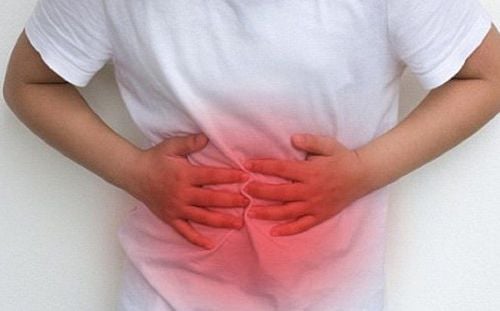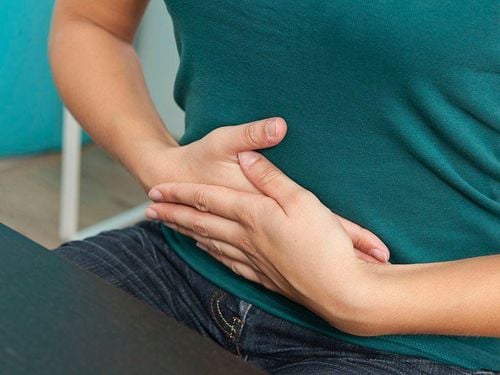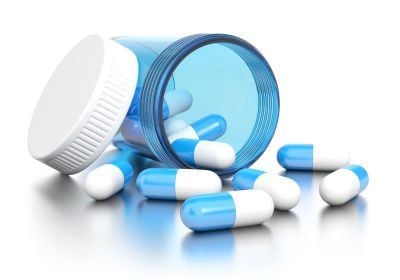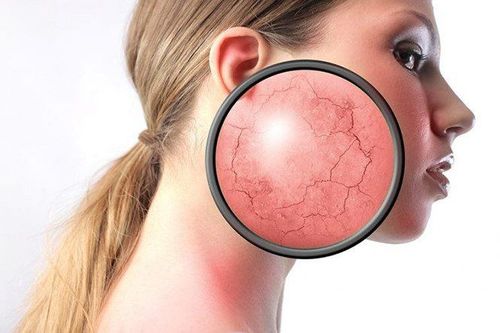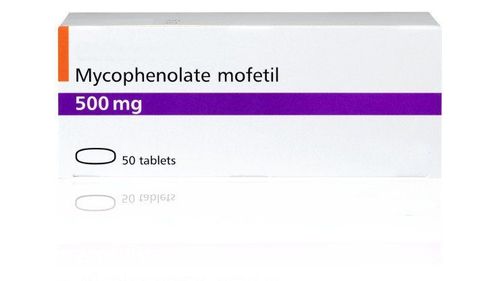This is an automatically translated article.
Posted by Master, Doctor Mai Vien Phuong - Department of Examination & Internal Medicine - Vinmec Central Park International General Hospital
Abdominal pain from ulcerative colitis can reduce your quality of life. If you have chronic, unmanageable pain to any degree, you can discuss a variety of treatments with your doctor to help you feel better.
1. Abdominal pain in ulcerative colitis
Ulcerative colitis (UC) is a type of inflammatory bowel disease that can cause varying degrees of pain.
Ulcerative colitis is caused by chronic, long-term inflammation that leads to sores on the wall of the digestive tract called mucosal ulcers or deep ulcers to the serosa of the colon or large intestine and rectum . A higher level of pain could be a sign that the disease is flaring up or even getting worse.
The level of inflammation in your colon and the site of this inflammation often determine where you are most likely to feel pain. Abdominal cramping and mild to severe pain in both the abdomen and rectum are common. The pain may persist or subside as the inflammation subsides.
Long periods of remission between flare-ups are common. During remission, your symptoms may decrease or disappear completely.
People with mild ulcerative colitis may experience only uncomfortable pressure in the abdomen and cramping in the abdomen. As the disease progresses with more inflammation and ulceration in your colon, abdominal pain can manifest as a sensation of squeezing or excessive pressure, tightness, and repeated bowel movements. Pain and bloating may also occur, making the feeling worse.
If you have a type of ulcerative colitis called left-sided ulcerative colitis, your left side may also feel painful to the touch of your abdomen.
If left untreated, the pain associated with ulcerative colitis can make it difficult to work, exercise, or enjoy daily activities. Disease control through medication, stress reduction, and diet can help control and relieve pain.
These treatments can also help get you back on track with your daily activities. Your doctor may recommend a combination of medications, dietary changes, and other complementary therapies to help manage your ulcerative colitis pain.
2. Over-the-counter drugs
If you have mild pain, medications such as acetaminophen (Tylenol) may be enough to do this procedure.
But instead, don't switch to other popular over-the-counter (OTC) pain relievers. The following OTC medicines should not be used to treat ulcerative colitis pain, as they can cause flare-ups and make other symptoms, such as diarrhea, worse:
Ibuprofen (Motrin IB, Advil) Aspirin (Bufferin) Naproxen (Aleve, Naprosyn)
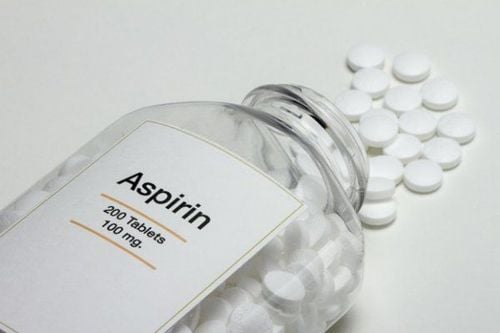
3. Change your diet
What you eat won't cause ulcerative colitis, but certain foods can worsen your symptoms and may cause additional cramping and pain. Keeping a food diary can help you identify any food triggers you may have.
4. Common foods to avoid include:
Dairy products high in lactose, such as milk High-fat foods, such as fried or greasy foods, beef and sugary, high-fat desserts Processed foods, such such as frozen dinners and boxed lunches High-fiber foods, such as whole grains Vital vegetables, such as Brussels sprouts and cauliflower, Spicy foods Alcoholic beverages Caffeinated beverages, such as coffee coffee, tea, and cola It can be helpful to eat several small meals throughout the day instead of three large ones. You should also drink plenty of water - at least eight 8-ounce glasses (about 250ml) a day. This can put less strain on your digestive system, produce less gas, and help bowel movements move through your system smoothly.
5. Strategies to reduce stress
Once thought to be the cause of ulcerative colitis, stress is now thought to trigger flare-ups of ulcerative colitis in some people. Managing and reducing stress can help ease symptoms of ulcerative colitis, such as inflammation and pain.
Different anti-stress techniques work for different people and you may find that simple walks in the woods and deep breathing are what work best for you. Yoga, mindfulness meditation, and exercise can also help reduce stress in people with ulcerative colitis.
Anti-inflammatory drugs
Inflammation is the root cause of most of the pain associated with ulcerative colitis. Certain medications can help reduce inflammation in the colon. Your doctor can help you decide which is right for you based on which part of your colon is affected as well as your pain level.
Anti-inflammatory drugs that may help include corticosteroids, such as prednisone and hydrocortisone.
Amino salicylates are another class of anti-inflammatory drugs. This medication is sometimes prescribed to treat ulcerative colitis pain. There are many types, including:
Mesalamine (Asacol, Lialda, Canasa) Sulfasalazine (Azulfidine) Balsalazide (Colazal, Giazo) Olsalazine (Dipentum) Anti-inflammatory drugs that can be taken by mouth as a tablet or capsule or taken by mouth suppositories or enema. They can also be given intravenously. Most anti-inflammatory drugs can cause different side effects.
You may need to try several types before finding the best one for your symptoms. Each drug is sold under several brand names.
Immunosuppressants
Immunosuppressants may be prescribed or supplemented with anti-inflammatory drugs. They relieve pain by stopping your immune system from triggering inflammation. There are several different types, including:
Azathioprine (Azasan, Imuran) Mercaptopurine (Purixan) Cyclosporine (Sandimmune) Immunosuppressants are commonly used for people who have not responded well to other medications and are only used in short time. They can harm the liver and pancreas.
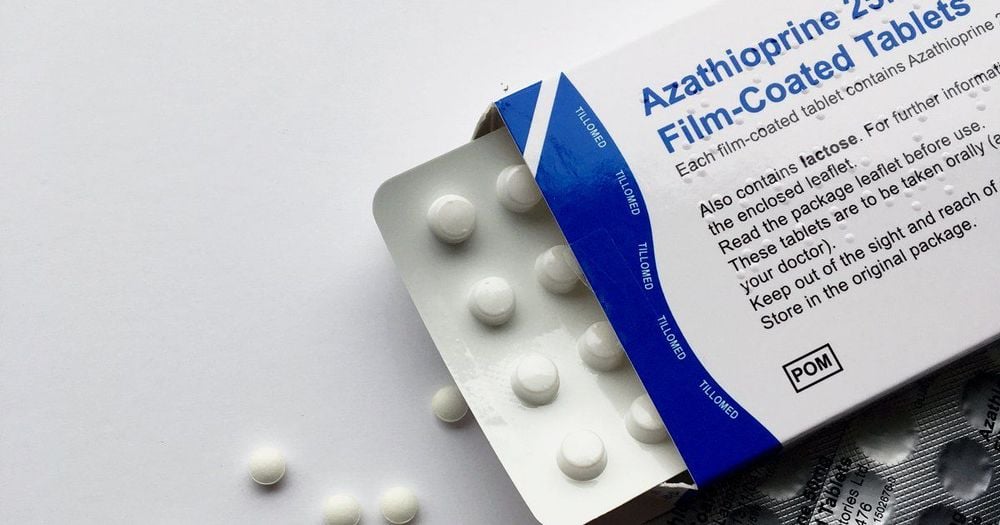
They can cause serious side effects, including decreased resistance to serious infections and some cancers, such as skin cancer. Cyclosporine has been linked to fatal infections, seizures, and kidney damage.
Biologics
Biologics are another type of immunosuppressive drug. One type of biological inhibitor is a tumor necrosis factor alpha (TNF-alpha) inhibitor.
TNF-alpha is used for people with moderate to severe ulcerative colitis that has not responded well to other types of treatment. They help relieve pain by disabling a protein made by the immune system. One TNF-alpha drug is infliximab (Remicade).
Integrin receptor antagonists are another biologic. These include vedolizumab (Entyvio), which has been approved to treat ulcerative colitis in adults.
Biologics have been linked to serious infections and tuberculosis.
Surgery
In severe cases, surgery may be the best way to get rid of ulcerative colitis and its pain. The most commonly used surgery is called a lumpectomy. It requires removal of your entire colon and rectum.
During surgery, a pouch made from the end of the small intestine will be attached to your anus. This allows for a relatively normal waste disposal to take place, meaning you won't have to wear an external bag.
Complementary and alternative remedies
Alternative treatments like acupuncture can help reduce and correct inflammatory bowel disease, reducing ulcerative colitis pain.
Another alternative form of treatment called moxibustion can also have a positive effect on ulcerative colitis symptoms. Moxibustion is a type of heat therapy. It uses dried plant materials that are burned in a tube to warm the skin, often in the same areas as acupuncture.
A review of several studies indicates that acupuncture and acupuncture may be effective when used alone, together, or in addition to medication. But reviewers point out that more research is needed before these techniques can be considered proven treatments for ulcerative colitis symptoms and pain.
If you have a need for consultation and examination at Vinmec Hospitals of the national health system, please book an appointment on the website (vinmec.com) for service.
Please dial HOTLINE for more information or register for an appointment HERE. Download MyVinmec app to make appointments faster and to manage your bookings easily.
ReferencesDocherty MJ, et al. (2011). Managing pain in inflammatory bowel disease. ncbi.nlm.nih.gov/pmc/articles/PMC3264972/ Ji J, et al. (2016). Review of the clinical studies of the treatment of ulcerative colitis using acupuncture and moxibustion. DOI: 10.1155/2016/9248589 Kvasnovsky CL, et al. (2015) Nonsteroidal anti-inflammatory drugs and exacerbations of inflammatory bowel disease. DOI: 10.3109/00365521.2014.966753 Mayo Clinic Staff. (2018). Ulcerative colitis. mayoclinic.org/diseases-conditions/ulcerative-colitis/basics/alternative-medicine/con-20043763 Mindfulness may be helpful for people with ulcerative colitis. (2014). nccih.nih.gov/research/results/spotlight/041114 Narula N, et al. (2008). Exercise and inflammatory bowel disease. ncbi.nlm.nih.gov/pmc/articles/PMC2660805/





